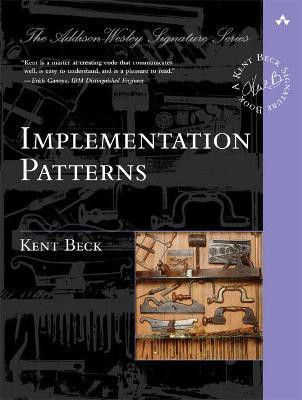Implementation Patterns(English, Paperback, Beck Kent)
Quick Overview
Product Price Comparison
Software Expert Kent Beck Presents a Catalog of Patterns Infinitely Useful for Everyday Programming. Great code doesnŌĆÖt just function: it clearly and consistently communicates your intentions, allowing other programmers to understand your code, rely on it, and modify it with confidence. But great code doesnŌĆÖt just happen. It is the outcome of hundreds of small but critical decisions programmers make every single day. Now, legendary software innovator Kent BeckŌĆōknown worldwide for creating Extreme Programming and pioneering software patterns and test-driven developmentŌĆōfocuses on these critical decisions, unearthing powerful ŌĆ£implementation patternsŌĆØ for writing programs that are simpler, clearer, better organized, and more cost effective. Beck collects 77 patterns for handling everyday programming tasks and writing more readable code. This new collection of patterns addresses many aspects of development, including class, state, behavior, method, collections, frameworks, and more. He uses diagrams, stories, examples, and essays to engage the reader as he illuminates the patterns. YouŌĆÖll find proven solutions for handling everything from naming variables to checking exceptions. This book covers The value of communicating through code and the philosophy behind patterns How and when to create classes, and how classes encode logic Best practices for storing and retrieving state Behavior: patterns for representing logic, including alternative paths Writing, naming, and decomposing methods Choosing and using collections Implementation pattern variations for use in building frameworks Implementation Patterns will help programmers at all experience levels, especially those who have benefited from software patterns or agile methods. It will also be an indispensable resource for development teams seeking to work together more efficiently and build more maintainable software. No other programming book will touch your day-to-day work more often.


